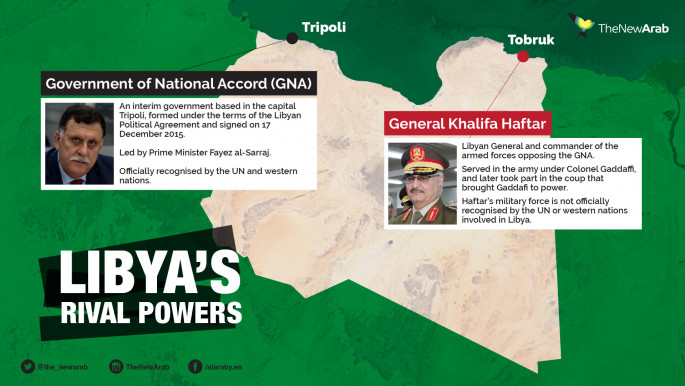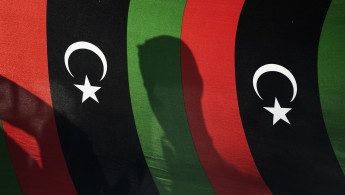UN urges Libya ceasefire after world powers agree to support peace process
The United Nations Security Council on Tuesday urged Libya's rival parties to quickly conclude a ceasefire agreement and welcomed the commitment by world powers and other key countries to support a plan to restore peace in the war-torn country.
The UN's most powerful body issued a statement after a closed-door briefing by Secretary-General Antonio Guterres. He told reporters afterward that it is critical to move from the current truce that has had some violations to a ceasefire accord and then to "a real political process".
He said a "major step" was taken on Sunday by leaders of 12 countries in agreeing at a meeting in Berlin to a 55-point final document plus operational plans. It commits them not to interfere in the conflict, to support a ceasefire, to honour a widely broken UN arms embargo, and to support a UN-facilitated political process, he said.
Following the 2011 Libyan civil war and killing of longtime dictator Muammar Gaddafi, the country was divided, with a UN-backed government in the capital of Tripoli overseeing the country's west and a rival government in the east aligned with the self-styled Libyan National Army led by General Khalifa Haftar.
Haftar launched a military offensive last April aimed at capturing Tripoli and ousting the internationally supported Government of National Accord led by Fayez al-Sarraj.
Haftar is backed by the United Arab Emirates and Egypt as well as France and Russia. The Tripoli-based government receives aid from Turkey, Qatar and Italy.
Read more: How Libya's crisis forced Algeria to come out of diplomatic hibernation
Guterres said his message to Haftar and Sarraj is to "accept fully the conclusions of the Berlin summit" and assume that the leadership is seeking peace and a united Libya that will cooperate with its neighbours.
Haftar and Sarraj were present in Berlin but did not attend the summit and did not talk to each other.
 |
| [Click to enlarge] |
Guterres noted that Haftar has not publicly supported the final document, even though he is participating in follow-up work that has already started on the economic track.
The secretary-general said follow-up work will continue quickly with the meeting of a military commission with five members from each side on a ceasefire.
The Security Council urged the parties "to engage constructively" in the commission "in order to conclude a cease-fire agreement as soon as possible".
It also supported efforts by UN envoy for Libya Ghassan Salame "to bring about a lasting ceasefire and a Libyan-owned, Libyan-led political solution in Libya".
Vietnamese Ambassador Dang Dinh Quy, the current council president, said members will talk about a legally binding Security Council resolution to follow up on the conclusions of the Berlin conference "in the coming days".
Guterres stressed that "this is just the beginning" of a long process, and needs pressure from the international community on the warring parties.
"I do believe that the endorsement of these conclusions by the Security Council and other steps in the follow-up could be extremely important," he said.
The Berlin summit participants were from Algeria, China, Egypt, France, Germany, Italy, Russia, Turkey, Republic of Congo, United Arab Emirates, United Kingdom and United States plus representatives of the United Nations, African Union, European Union and Arab League.
Follow us on Twitter and Instagram to stay connected





 Follow the Middle East's top stories in English at The New Arab on Google News
Follow the Middle East's top stories in English at The New Arab on Google News
![Netanyahu furiously denounced the ICC [Getty]](/sites/default/files/styles/image_330x185/public/2024-11/GettyImages-2169352575.jpg?h=199d8c1f&itok=-vRiruf5)
![Both Hamas and the Palestinian Authority welcomed the ICC arrest warrants [Getty]](/sites/default/files/styles/image_330x185/public/2024-11/GettyImages-2178351173.jpg?h=199d8c1f&itok=TV858iVg)
